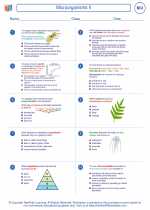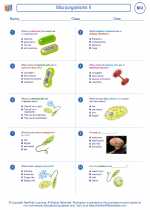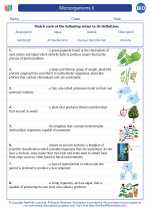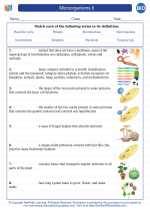Understanding Conduction in Biology
What is Conduction?
Conduction is the transfer of heat through a material without any perceptible movement of the material itself. In biological systems, conduction plays a role in the transfer of heat within organisms and between organisms and their environment.
Conduction in Organisms
In organisms, conduction occurs when heat is transferred through the body of an organism. For example, when an organism comes into contact with a warmer or cooler surface, heat is transferred via conduction. This process is important for temperature regulation in organisms.
Examples of Conduction in Biology
Examples of conduction in biology include the transfer of heat from the ground to the feet of an animal, or the transfer of heat from the sun-warmed surface of a rock to a cold-blooded reptile basking on it.
Factors Affecting Conduction
Several factors can affect the rate of conduction in biological systems, including the conductivity of the materials involved, the surface area of contact, and the temperature gradient between the two materials.
Significance of Conduction in Biology
Conduction is an important process for organisms to maintain their body temperature within a suitable range for biological functions. Understanding conduction helps in understanding how organisms interact with their environment and regulate their internal temperature.
Study Tips
- Understand the difference between conduction and other modes of heat transfer, such as convection and radiation.
- Explore specific examples of conduction in different organisms and environmental conditions.
- Consider the adaptive significance of conduction in the context of evolution and ecological interactions.
- Practice solving problems related to conduction and temperature regulation in organisms.
- Relate the concept of conduction to real-world examples and current research in the field of biology.
[Conduction] Related Worksheets and Study Guides:
.◂Biology Worksheets and Study Guides High School. Microorganisms II

 Worksheet/Answer key
Worksheet/Answer key
 Worksheet/Answer key
Worksheet/Answer key
 Vocabulary/Answer key
Vocabulary/Answer key
 Vocabulary/Answer key
Vocabulary/Answer key
 Vocabulary/Answer key
Vocabulary/Answer key
 Vocabulary/Answer key
Vocabulary/Answer key
 Vocabulary/Answer key
Vocabulary/Answer key
